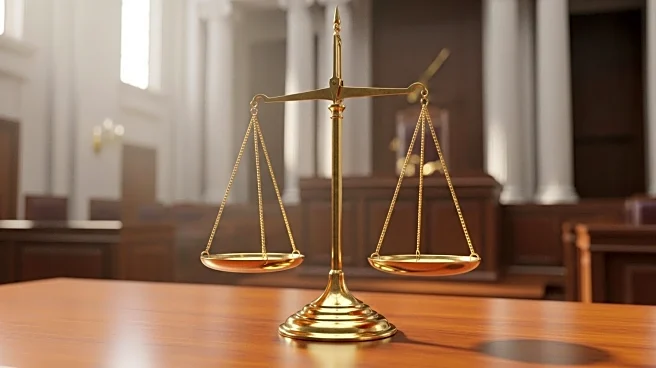What is the story about?
What's Happening?
The Supreme Court is set to begin its new term with a docket of significant cases that could reshape aspects of presidential power and civil rights. Among the 33 cases scheduled for argument this fall, the justices will address issues such as transgender rights, voting rights, and the extent of presidential authority in imposing tariffs. One notable case involves the legality of conversion therapy bans, where a Colorado counselor challenges state laws prohibiting the practice, citing First Amendment rights. Another case will examine whether states can redraw congressional districts to create Black majority districts, a practice previously upheld under the Voting Rights Act but now facing scrutiny. Additionally, the court will consider President Trump's authority to impose tariffs unilaterally under a 1977 law, despite lower courts ruling such tariffs illegal. The term will also revisit the independence of officials in semi-independent agencies, a precedent set in 1935, which President Trump has challenged by firing several such officials.
Why It's Important?
These cases hold significant implications for U.S. politics and society. The outcomes could redefine the balance of power between the presidency and other branches of government, particularly concerning the president's unilateral actions in foreign affairs and national security. The decisions on civil rights issues, such as transgender athletes' participation in sports and the creation of Black majority districts, could impact anti-discrimination laws and minority representation in government. The court's rulings may also influence future legislative and executive actions, potentially altering the landscape of U.S. civil rights and governance. Stakeholders, including civil rights groups, state governments, and the federal administration, are closely watching these developments, as the decisions could set new legal precedents.
What's Next?
As the Supreme Court hears these cases, reactions from various stakeholders are anticipated. Civil rights organizations may intensify advocacy efforts depending on the outcomes, particularly if the court's decisions are perceived as limiting rights or protections. State governments might need to adjust their laws and policies in response to rulings on voting rights and transgender athletes. The federal administration could face constraints or new opportunities in exercising presidential powers, especially regarding tariffs and agency oversight. The court's decisions will likely prompt legislative responses, as lawmakers seek to address any gaps or ambiguities in existing laws.















